Acknowledging FY21 as a difficult year for the automotive industry, the company expects the current fiscal to turn out to be better than the previous one, reports Rajesh Rajgor
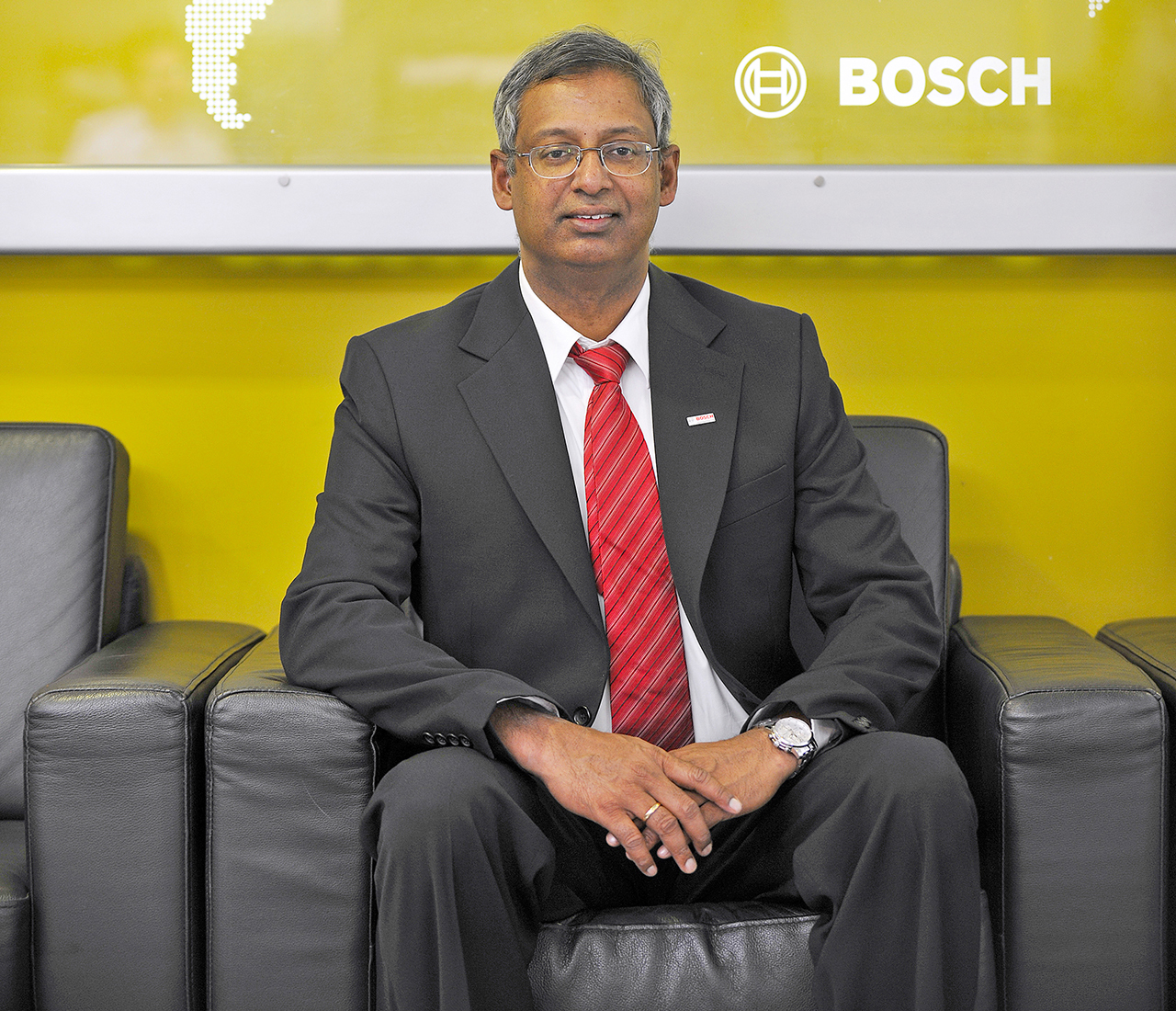
Bosch Limited, the flagship company of the Bosch Group in India, a leading global supplier of technology and services, ended its fiscal year 2020-21 with a total revenue from operations of Rs 9,718 crore (Euro 1.12 billion), thus registering only a marginal decline of 1.3 per cent compared to the previous fiscal year. “Despite facing a spell of near-zero sales in the month of April and May in 2020, there has been a significant increase in the demand from the agriculture sector, mainly the tractor business. The industry showed continued signs of recovery since the second quarter of FY 2020-21; however, it remains impacted due the uncertainties in the market,” said Soumitra Bhattacharya, Managing Director, Bosch Limited and President, Bosch India.
“International market volatilities in the supply chain will also continue to impact the automotive sector. Furthermore, we have seen growth in the power tools segment, especially in the construction and e-commerce sectors,” he added. During FY 2020-21, Bosch Limited made a provision of Rs 743.8 crore towards various restructuring, reskilling and redeployment initiatives. These provisions have helped the company in transforming the company and making it future-ready. Total investments in 2020-21 amounted to Rs 246 crore with major spend on the expansion of its Adugodi campus into a smart campus.
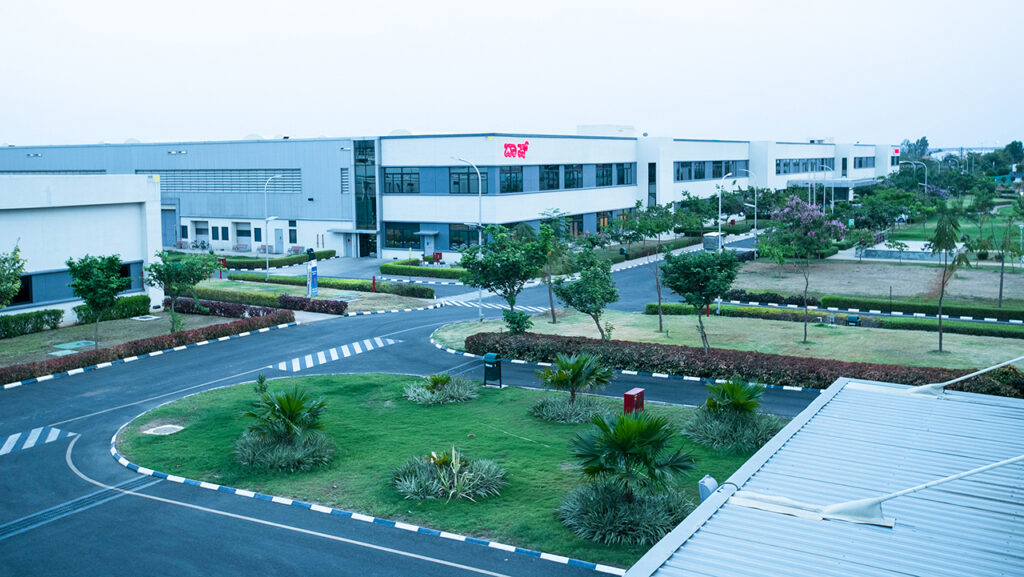
Q4 Performance
Acknowledging FY21 as one of the most difficult years for the auto industry, Bhattacharya hoped that the current fiscal would turn out to be a little better than the previous year. In the quarter ending on March 31, 2021, – Q4 of FY 2020-21 – Bosch Limited posted a total revenue from operations of Rs 3,218 crore, thus registering an increase of 43.8 per cent compared to the corresponding quarter in 2020. PBT for the current quarter stood at Rs 640 crore, 77.2 per cent increase over the same period of the previous year. “India is witnessing an alarming spike in corona virus cases in the second wave of the pandemic. While the central and state governments are doing their bit to accelerate the vaccination drives and ensure the safety of its citizens, we must act responsibly by following the guidelines set by them,” he said.
Emphasizing on the slew of welfare work, he added: “The welfare of our employees and people around us is a priority for Bosch. Apart from converting our sports complex into a corona virus care centre for BBMP, donating close to four million medical grade masks to frontline workers and giving free vaccination to all our staff and their dependents, we are also investing in an in-house oxygen generation unit for business purposes as well as an aid to healthcare infrastructure.”
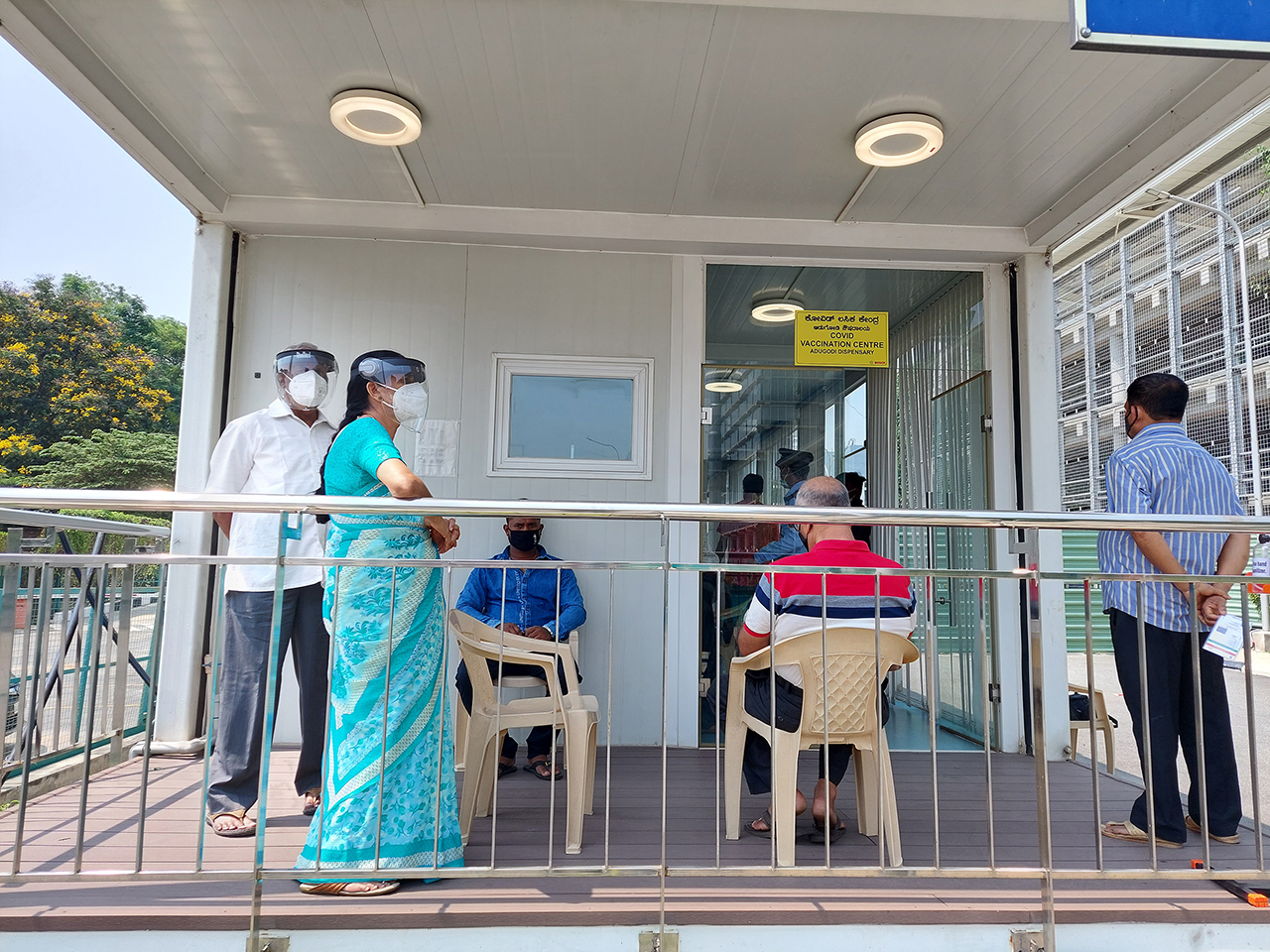
The total revenue of Bosch Limited’s mobility solutions business sector increased 56.6 per cent in the quarter ending on March 31, 2021. Within this business sector, total revenue of the powertrain solutions division increased by 65.6 per cent. The two-wheeler and power sports along with the automotive aftermarket witnessed a continued growth during the quarter. Bosch Limited’s mobility solutions business sector increased 2.4 per cent in 2020-21, amidst lockdown in April and part of May 2020. Domestic sales increased by 1.2 per cent. Within the mobility solutions sector, the powertrain solutions division registered an increase of 1.8 per cent owing to reasons mentioned above. Business beyond mobility solutions has recorded a decline of 11.7 per cent. Considering the company’s performance, the Board of Directors recommended a dividend of Rs 115 per share for this 12-month period.
On asked about business in the automotive aftermarket Bhattacharya said: “The automotive aftermarket has seen a very positive turnaround. The automotive market’s performance parameters are pretty strong. Our increased dealer reach, increased working capital management and most importantly creating a pull versus a push approach has helped. We have seen very strong growth and even on a low base the automotive market growth was 40 per cent. So, we are on a good journey to focus on diagnostic, digitization and services to strengthen our ‘spare part’ business. It remains our strongest part in the overall business.”
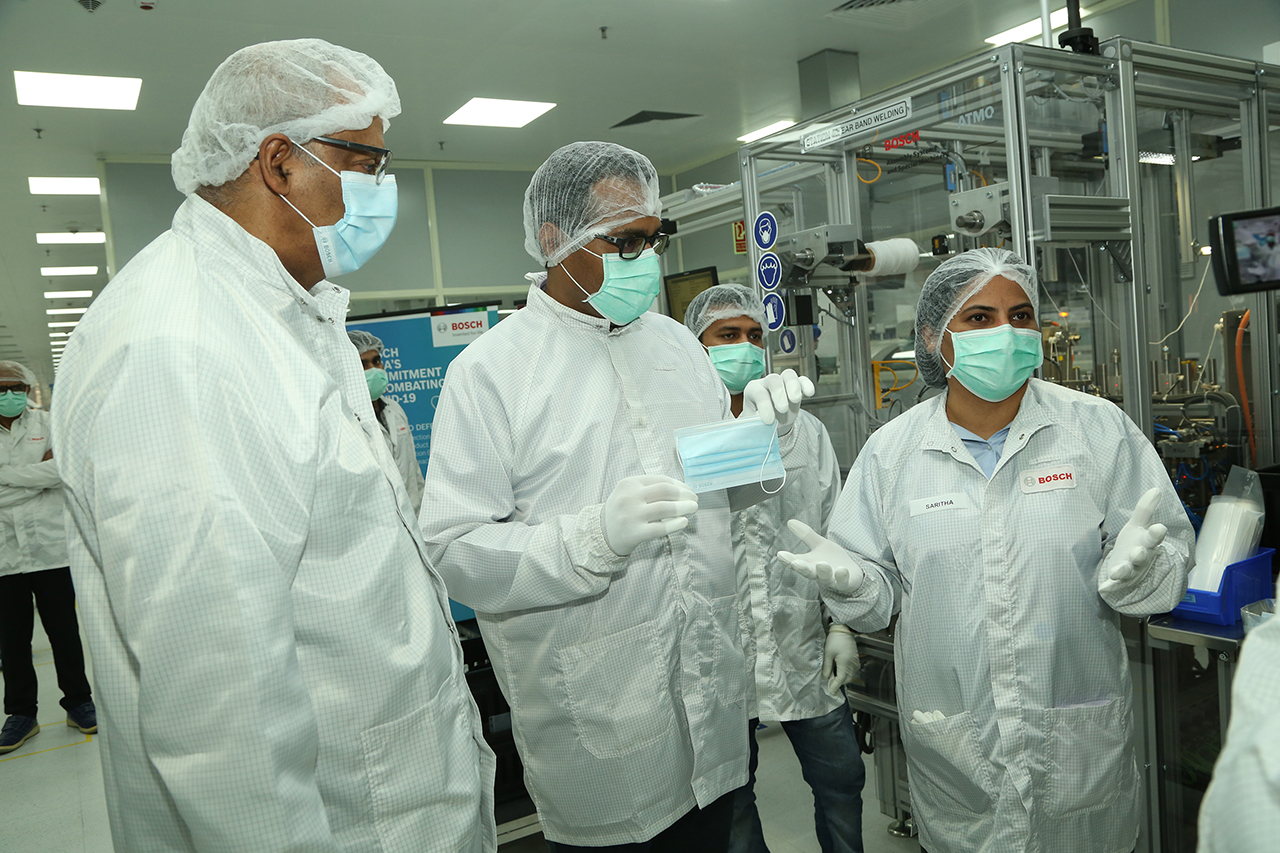
He added: “We don’t break up in gasoline and diesel business but with BS-VI kicking in and the momentum in SCV and LCV market would move our product content levels in these segments.” On the prevalent question of shortage of semiconductors, Bhattacharya noted that the situation was a global challenge and not specific to India. It is likely to remain challenging in the current year with improvement if any expected only next year. He stated that barring their Nashik plant, all other company facilities in the country were up and running.
Outlook for FY 2021-22
Bosch has a long-term strategy to shape the market in key technologies with innovative products and solutions. Bosch Limited thus continues its stance to be a technology agnostic partner to customers, government and other stakeholders. “While we have successfully managed the transition from BS-IV to BS-VI, the next challenge will be transitioning to TREM 4 and 5, adoption of CAFE norms Phase 2 and BS-VI Stage 2. Amidst the crisis, Bosch in India will continue with the investments in competence development in addition to the solutions designed and developed in India and for India,” informed Bhattacharya in reply to a question to the company’s ‘Make in India’ contributions.
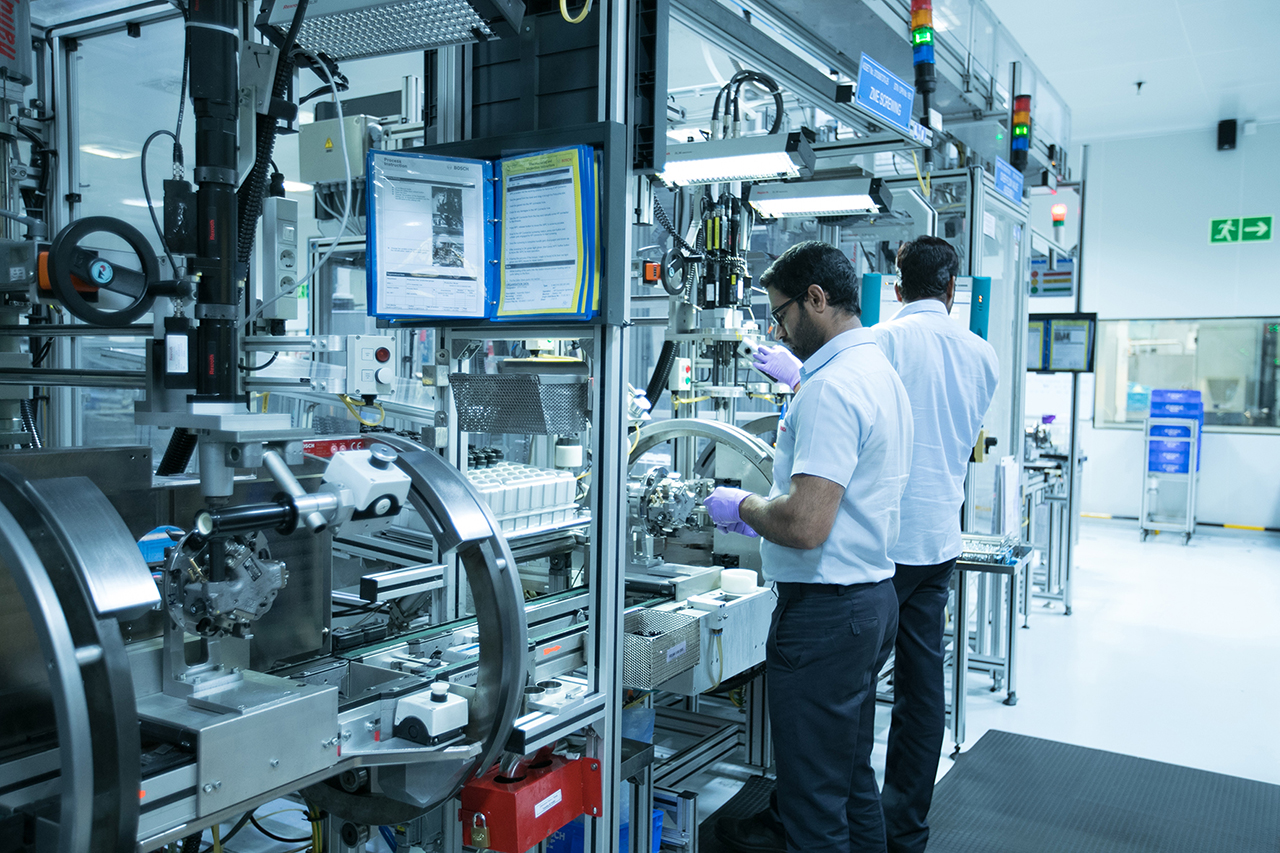
For all Bosch businesses beyond mobility solutions, the company has a two-pronged approach. On one hand, Bosch continues to bring-in ‘fit for market’ products and solutions while on the other, the company will increase its ‘go to market’ footprint using both offline and digital platforms. Scaling up e-commerce activities will remain one of the key initiatives in FY 2021-22.
The company, which has also been certified as a ‘great place to work’ during the pandemic, has another feather in its cap – its investment in SUN Mobility. Adding to this, Bhattacharya said, “Bosch’s engagement with SUN Mobility complements our shared vision towards growth of electro-mobility. At Bosch we firmly believe that the diverse powertrain technologies will continue to coexist. A mix of combustion engines and electrification will be needed for a highly efficient mobility ecosystem.” Speaking about the outlook for the upcoming fiscal year, Bhattacharya commented: “The automotive industry was seeing itself on a road of recovery until early this year and Bosch Limited’s positive result is a validation to it. However, with the second wave being more severe, there is a lot of uncertainty in the market. With 80 per cent of our revenues driven through mobility business, we have been affected adversely. The challenge will be to manage the fluctuating demand, supply chain crisis and changing consumer behaviour all at once.”